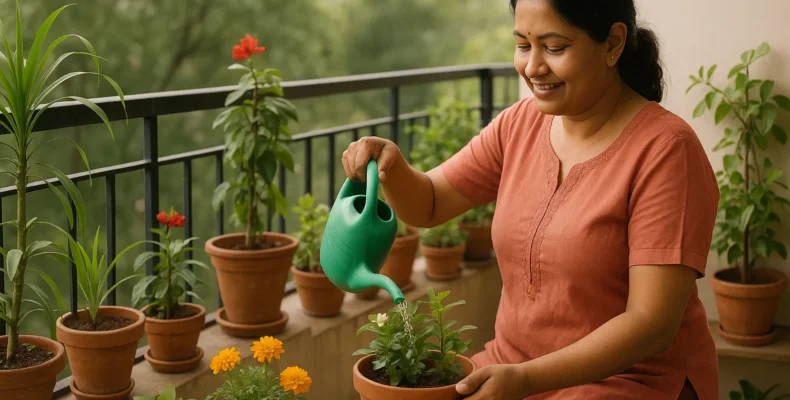Most people don’t expect mental health support to come from a patch of soil, but it often does. Gardening brings calm. It slows your thoughts, steadies your breath, and gives your hands something real to do. You don’t need experience or a big garden. A sunny spot, a few seed packets, and some curiosity are enough to begin.
At Bell Phillips Outdoor, we’ve seen how even a few pots can lift someone’s mood and create a sense of calm. Tending herbs, flowers, or edible plants can help you focus and feel more balanced day to day.
In this guide, we’ll explore the benefits of gardening and how it can support mental health, especially if you’re new to it. Looking to feel more grounded, one plant at a time? Let’s get started.
Mental Health Benefits That Bloom in the Garden
Gardening isn’t only good for your plants. It helps your mind, too. The rhythm of digging, planting, and watering slows things down and brings your focus back to what’s right in front of you.
Let’s explore how time spent in the garden supports your mental health and creates space to breathe.
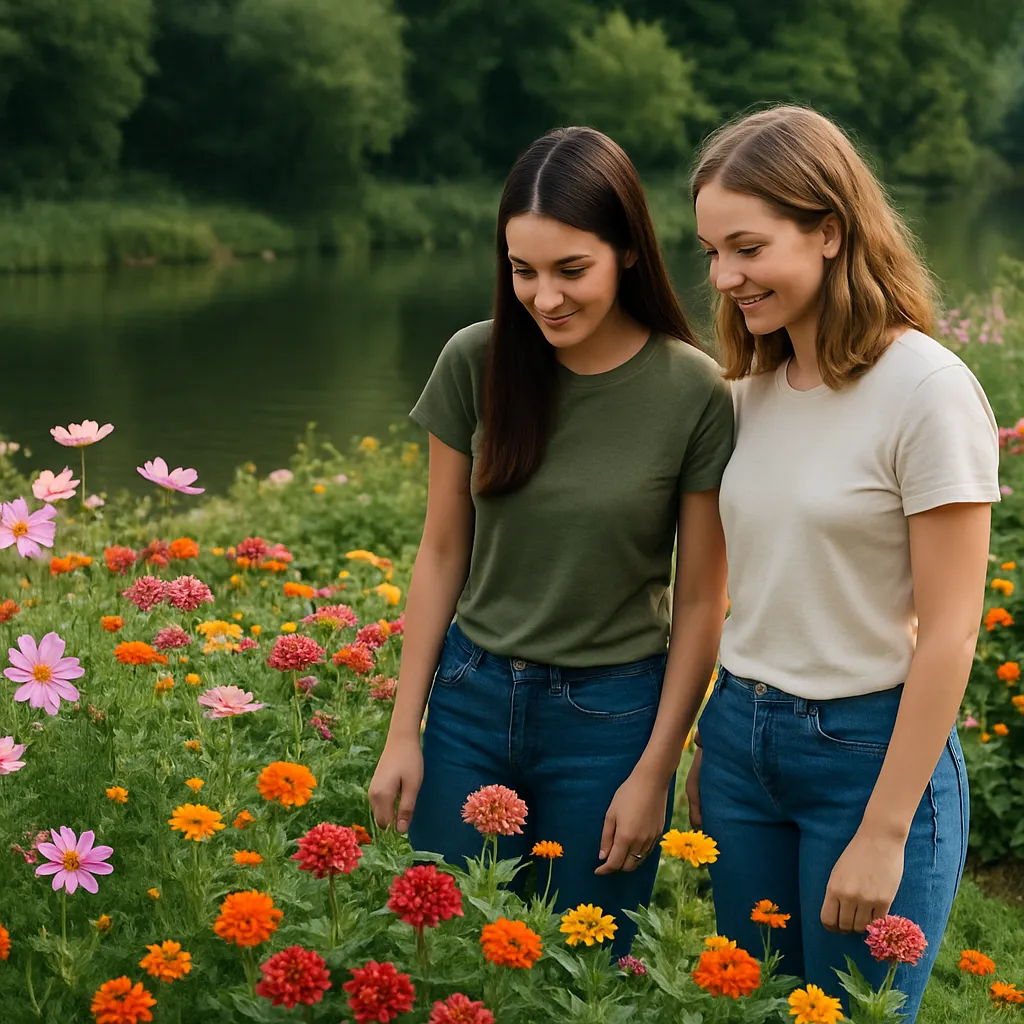
A Natural Way to Reduce Stress
Spending time in the garden helps calm your nervous system. Tasks like pulling weeds, raking soil, or planting herbs give your brain a break from digital overload. Your hands move with purpose, your breathing slows, and your mind starts to settle. This kind of simple focus is one of the most overlooked psychological benefits of gardening.
Boosting Mood Through Small Wins
Seeing progress like new leaves or tiny buds builds a quiet kind of hope. You feel more capable, more present. These moments aren’t dramatic, but they matter. They’re linked to improved mental health, especially when you make gardening a regular part of your week.
Mindfulness in Motion
Gardening turns repetitive tasks into moments of reflection. Watering, repotting, or even watching insects move through the garden invites a slower pace. It helps your body relax and gives your mind space to reset. It’s this combination of movement and stillness that makes gardening so powerful for mental health.
Rooted in Research
You don’t have to take our word for it. A study by ScienceDirect involving nearly 5,000 adults in Brisbane found that people who garden regularly reported higher levels of mental wellbeing and felt more socially connected.
Whole-Body Benefits
Gardening not only supports your mind but also benefits your body. The combination of sunlight, physical activity, and time outdoors can improve both physical and mental health. Even your vitamin D levels get a boost when you step into the sun.
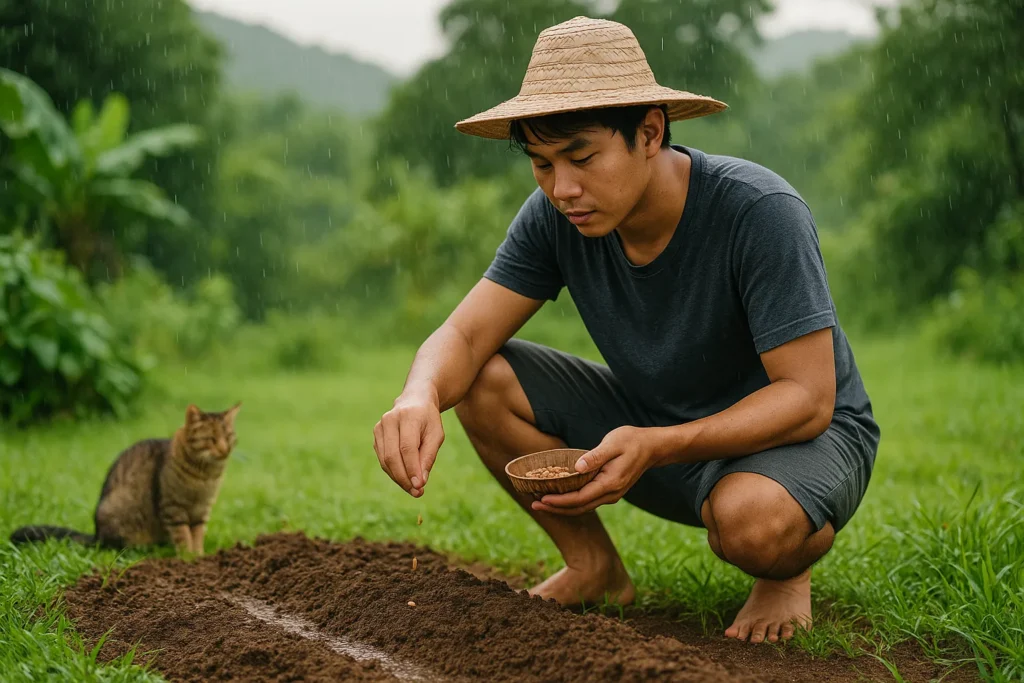
Beginner Gardening Tips That Support Wellbeing
Starting a garden might feel overwhelming at first, but it doesn’t have to be. A few simple choices can make the experience more enjoyable and more likely to stick. These tips are designed to help you build confidence while also supporting your mental well-being.
Here’s a helpful guide to make those first steps easier.
- Start small with a sunny spot: Choose one corner of your yard, balcony, or window ledge. Light matters, so look for a space that gets at least 5–6 hours of sun.
- Pick low-stress plants: Hardy herbs like mint or thyme, leafy greens like lettuce, and flowers like marigolds are great for beginners. They’re forgiving, quick to grow, and easy to enjoy.
- Use good soil and check drainage: Healthy plants need healthy roots. A quality potting mix and containers with drainage holes will help prevent soggy, struggling seedlings.
- Keep watering simple: A morning routine works best. A quick water check also gives you a chance to notice how your garden is growing. It becomes one of those grounding gardening activities that help you slow down.
- Try seed packets or starter trays: Growing from seeds feels rewarding, but nursery seedlings are great too. Both teach you how plants grow and how to care for them.
- Stick to a few tasks at a time: Focus on watering, checking soil, and observing growth. These small, repeated steps build rhythm and calm into your day.
This is less about doing everything perfectly and more about finding peace in small routines. Beginner gardening tips like these support both your garden and your mental health, especially when you’re still learning what works best for you.
Growing Your Own Food Is Good for the Soul
There’s something deeply satisfying about pulling a carrot from the soil or snipping fresh basil for dinner. It’s the quiet pride that comes from planting something, caring for it, and seeing it thrive. Besides, growing edible plants supports your body and your mood. Let’s know how.
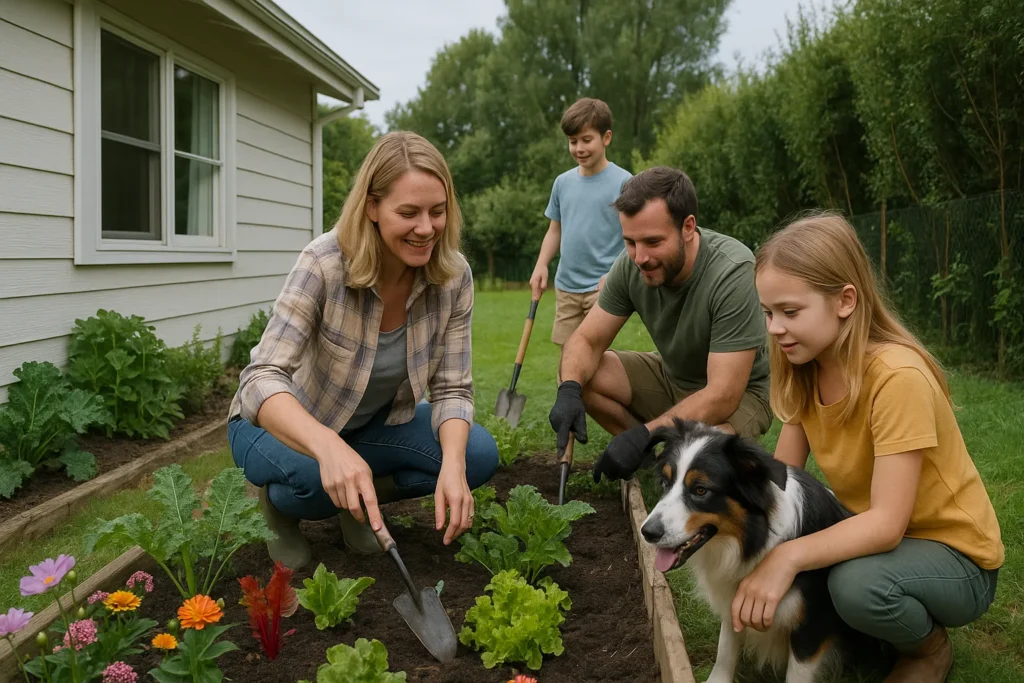
Planting Seeds of Confidence
When you grow vegetables or herbs, you build trust in your ability to nurture something. That confidence spills into other parts of life. It’s empowering to see progress, especially when that progress tastes great.
Simple Crops to Get Started
A small vegetable garden doesn’t require digging up the backyard. Planters boxes with cherry tomatoes, rocket, or lettuce are a good start. Herbs like parsley and chives grow well in pots and are easy to harvest when needed. These plants are low-maintenance and ideal for new gardeners.
A Meal That Means More
Harvesting your own food turns mealtime into something personal. You’re more connected to what you eat, and you waste less because you’ve seen the effort it took to grow it. That connection brings a sense of calm and satisfaction. It also encourages physical activity, even in short bursts, which adds to the mental and physical health benefits.
Key Takeaway: A vegetable garden may begin with a few seed packets and a patch of soil. But the outcome is far more rewarding. You feed your body, care for your mind, and reconnect with something real.
Let Nature Help You Heal
There’s something about a flourishing garden that invites calm. Bees drift between blossoms, butterflies land for a moment, and the air hums quietly. These small interactions with nature have a calming effect. They make your garden more than a hobby. It becomes a healing space.
Here’s an overview of what can happen:
- Welcoming Pollinators, Welcoming Peace: Attracting pollinators like bees and butterflies makes your garden feel more connected and complete. Flowers like lavender, daisies, and marigolds can bring colour and movement to your space, and watching these visitors helps calm the mind.
- Nature as a Prescription: Some primary care doctors now recommend gardening as part of a mental health routine. The benefits of gardening go beyond physical activity. It brings structure to your day, encourages gentle movement, and reduces feelings of isolation. The garden becomes a place you return to, not out of obligation, but because it feels good to be there.
- Creating a Living Ecosystem: Your garden is a small world of its own. Plants, insects, soil, and sunlight all work together. When you help this system thrive, it gives back. The routine of gardening improves mental health and supports your emotional balance. It also reconnects you to something real and steady.
In this space, healing often happens quietly. And over time, being surrounded by nature brings a sense of calm that stays with you long after you step back indoors.
Knowing Your Seasons & Frost Dates
Ever planted something too early, only to find it wilted the next morning? That’s often due to frost. Learning when and what to plant can save you time, money, and frustration.
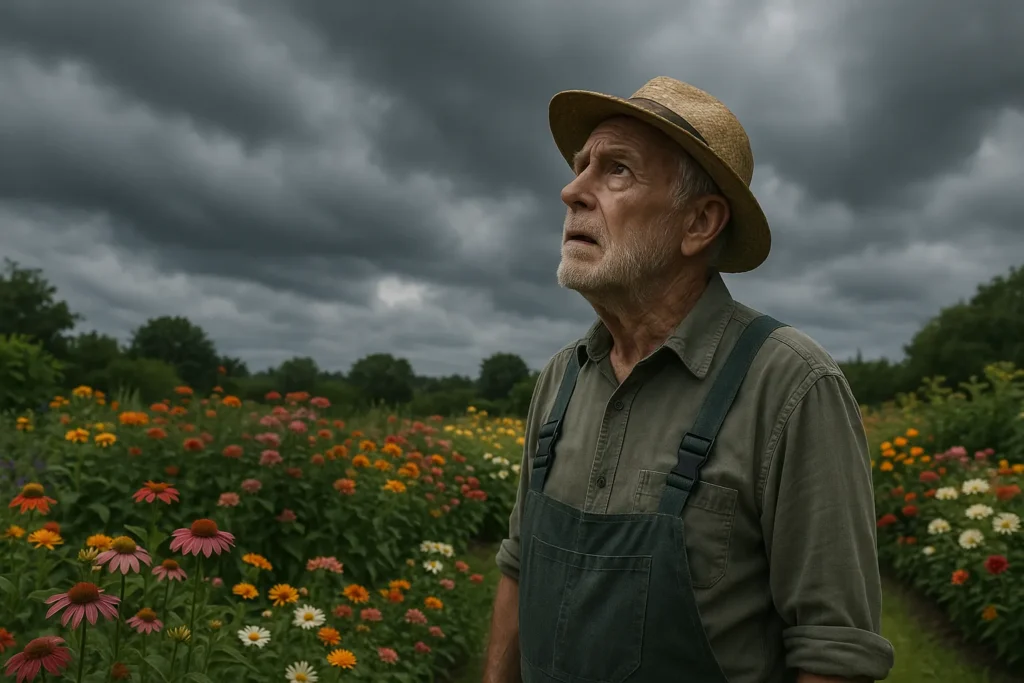
Here are a few gardening tips to help you work with the seasons:
- Know your frost dates: In many parts of Australia, late autumn and early spring can bring sudden cold snaps. Check the BOM’s climate tool to find average first and last frost dates in your area.
- Plant for the season: In cooler months, go for spinach, peas, or broccoli. In warmer weather, try tomatoes, zucchini, or basil. Matching your plants to the season sets you up for a stronger harvest.
- Use soil suited to your crops: Leafy greens do well in loamy soil with plenty of organic matter. Root vegetables need loose, well-drained soil. Mix in compost to improve structure and nutrients.
- Watch the weather closely: Unexpected chills still happen. Keep an eye on forecasts and cover young plants when needed.
Planning with the seasons keeps your garden healthier and your efforts more rewarding.
So, Start Small, Feel Big
A healthy garden doesn’t happen overnight. And neither does better mental health. But both begin the same way, with a small step. Planting something simple, caring for it each day, and watching it grow brings a quiet kind of progress that makes a difference.
If you’re curious about how your outdoor space can support wellbeing, check out the eco living insights from Bell Phillips Outdoor. Our guides offer ideas and inspiration for turning everyday spaces into places of calm and connection.
Remember, starting small is enough. A handful of herbs, a tray of seedlings, or a single patch of soil can help you feel grounded. The benefits begin as soon as you start caring for something. You’ll build confidence, feel calmer, and reconnect with what truly matters.
And all of that begins with a seed.
